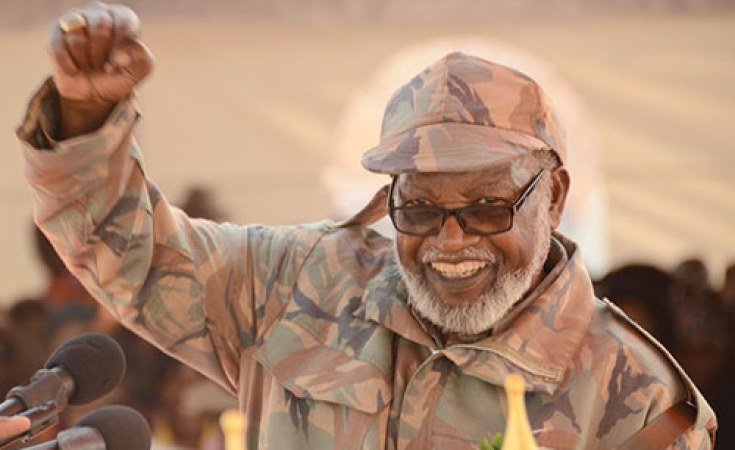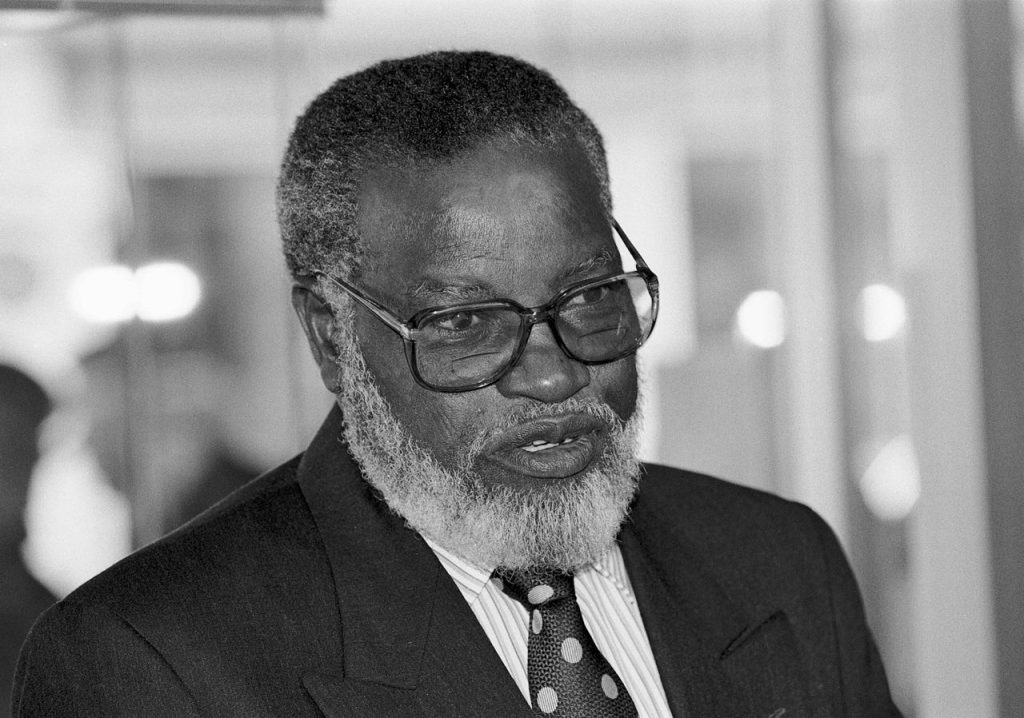Thousands of Namibians and dignitaries gathered on Saturday to honour the life of the country’s independence leader, Sam Nujoma, as nearly a month of tributes culminated in a state funeral.
Sam Nujoma, the guerrilla commander who led Namibia to independence from apartheid South Africa, passed away on 9 February at the age of 95.
His casket, draped in Namibia’s blue, white, red, and green flag, was transported on a gun carriage to its final resting place at Heroes’ Acre, a mountainous memorial dedicated to the country’s liberation fighters, located outside the capital, Windhoek.

Several African leaders, including South African President Cyril Ramaphosa, Angola’s João Lourenço, and Zimbabwe’s Emmerson Mnangagwa, attended the funeral alongside international dignitaries such as Cuba’s parliamentary speaker, Esteban Lazo Hernández. The solemn event was broadcast live on state television.
Namibian President Nangolo Mbumba led the tributes, hailing Nujoma as “the most distinguished son of the soil”.
He described the former leader as a “giant” among statesmen, acknowledging his towering role as the head of the South West People’s Organisation (SWAPO), which spearheaded the country’s fight for independence.
“You were the ultimate statesman,” Mbumba declared. “May your legacy become a source of strength as we continue to uphold your command of maintaining unity of purpose.”
Nujoma’s widow, dressed in black, did not address mourners during the ceremony. However, in a speech read on her behalf the previous day, she described her late husband as “steadfast, resolute, honest, and disciplined.”
“When my husband left for exile, my family and I were not spared from the hardships. Yet even in his absence, my husband’s love and strength enveloped us,” she said at a memorial service marked by hymns and prayers.
Nujoma’s Legacy of Stability

Born into a family of poor farmers from the Ovambo ethnic group, Nujoma was the eldest of ten children.
His first job was as a railway sweeper in 1949, during which he attended night classes that sparked his political consciousness.
By the late 1950s, he had aligned with black workers in Windhoek resisting a government directive to relocate to a new township.
In 1960, the same year he was elected to lead SWAPO, Nujoma went into exile. SWAPO launched an armed struggle against South African rule six years later, after Pretoria defied a United Nations mandate to relinquish control over the former German colony.
Following Namibia’s independence in 1990, Nujoma became the nation’s first president, a position he held until 2005. He stepped down as SWAPO leader two years after leaving the presidency.
During his three terms in office, he oversaw a period of political stability and relative economic growth. His approach to combating AIDS earned him international recognition.
Over the past month, thousands of Namibians have paid their final respects as his body was transported across the length of the sparsely populated nation, before lying in state on Friday.


